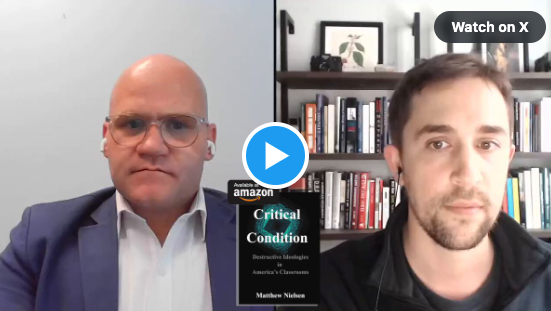by Matthew Nielsen
Journalists around the country have made a name for themselves, some more successfully than others, by attacking school choice. The ramp-up of these attacks could simply be a byproduct of organizing efforts of teacher unions, which vehemently oppose school choice in all its forms. On the other hand, there is certainly a possibility that much of the lobbying efforts of the well-funded teacher unions are being directed toward media outlets that are largely friendly to their agenda.
Unfortunately for subscribers and readers, facts aren’t always the priority in articles published by activist journalists for whom the ends justify the means. If a few half-truths are necessary to turn public opinion against quality school options outside of district schools, that’s a small price to pay in order to keep in the good graces of some of the largest employee unions in America.
Little surprise, then, that when errors and omissions are pointed out to these reporters, retractions and corrections are made silently if they’re made at all. This maximizes the negative effects on school choice and minimizes accountability for the error-prone reporters.
Reporters who repeat errors after they’ve been provided with correct information do so in order to perpetuate a narrative that aligns with their ideology.
Like many other anti-school choice zealots, Mr. Nordstrom* of NC Policy Watch disregards the facts that don’t suit his agenda when it comes to educational freedom. He is consistently in favor of not just limiting, but eliminating individual choice in education. He regularly writes articles that attack charter schools and private schools while extolling the assumed inexhaustible virtues of government schools.
In this article, Mr. Nordstrom misstates several facts but none so severely as his assertion that charter and voucher schools “siphon” money from district schools. He cites a study by Helen Ladd and John Singleton, The Fiscal Externalities of Charter Schools: Evidence from North Carolina that finds a “large and negative fiscal impact from $500-$700 per pupil in our one urban school district and somewhat smaller, but still significant, fiscal externalities on the non-urban districts in our sample.” Nordstrom ignores the shortcomings of the study, such as the fact that Ladd and Singleton examined only six of the 59 counties that had one or more charter schools during the 2015-16 school year. More importantly, he fails to justify their unorthodox determination and treatment of variable and fixed costs.
Mr. Nordstrom also asserts that schools of choice are responsible for racial segregation and segmentation in North Carolina schools. In his 2018 report, “Stymied by Segregation: How Integration Can Transform North Carolina Schools and the Lives of Its Students,” Nordstrom writes, “Research clearly demonstrates that North Carolina’s charter schools have contributed to increasing racial segregation.” Yet, only around 6 percent of public school students attend charter schools, and much of his case is based on simple correlations, rather than on methods that establish causation. He ignores basic facts about charter school laws, such as the requirement that charter schools use a lottery when applicants outnumber seats. Selecting students randomly, among other factors, precludes the ability to mirror the demographics of nearby school districts.
Of the 20 most recent articles published by reporter Craig Harris (Arizona Republic), 16 are about charter schools. One of those 16 articles is what can be considered “generally positive” toward school choice. Unfortunately for him, it seems Mr. Harris has had to make a number of retractions to his articles for reporting faulty information.
Perhaps the most egregious example of misinformation by Mr. Harris is his pointed accusations against a charter school accountant in Arizona that, after nearly a year of investigations, seems to be quite close to complete exoneration.
The Arizona State Board of Accountancy’s hired investigator, Marshall “King was most critical, calling Huber’s work “woefully below” auditing standards.” Though Harris hasn’t reported it, the Mr. King referred to made up to 36 errors in his investigation of the charter school accountant in question. In the meantime, though, the accountant has been out of work and unable to provide for his family. If Harris is remorseful for the false accusations that led to this tragedy, he hasn’t made that public.
Reporter Valerie Strauss (Washington Post) is known for the consistent surrender of her column to other anti-school choice, and pro-union, individuals from across the country. An introductory paragraph or two and the remainder is yielded to a friend of the unions.
In this case, the space is granted to Carol Burris, the Executive Director at “Network for Public Education” (“NPE”). This organization was founded by the inimitable Diane Ravitch. (Once a strong proponent of school choice, Ravitch changed her mind about educational freedom in the early 2000’s for reasons that are still somewhat opaque.)
Ms. Burris takes every opportunity to rail against charter schools, which are largely made up of minority students in Pennsylvania. She opts for the path of least resistance by citing examples of alleged mismanagement in an effort to paint all school choice with the same broad brush. Her examples of schools in financial trouble or needing tighter operational controls are not without their corollaries in district schools—with one important caveat: district schools are granted near unlimited “second chances.”
One wonders whether her ire would be so intense if she had ever visited the venerable Boys Latin school of Philadelphia, where founder David Hardy has created a lighthouse of learning for young men year after year, or countless other “non-district” providers of education that are not just doing well, but outperforming district schools across the country.
Disregarding the facts, even after they’re pointed out, leads to erosion of trust in the press–a sad reality today. Fortunately, despite the best efforts of reporters like these, families still choose choice. When given the freedom to choose, they’ll use that opportunity to select an option that best fits their children. Families could use more reporters that recognize the benefits of freedom and are willing to report them.
*Mr. Nordstrom is not a journalist, but a “Sr. Policy Analyst.”


